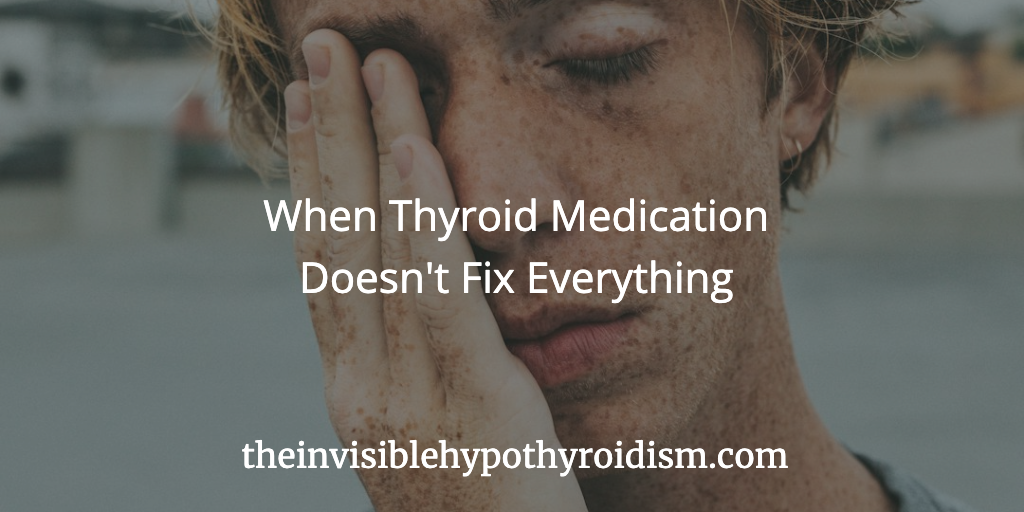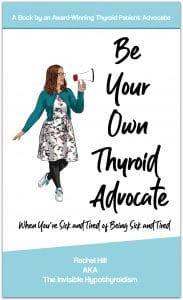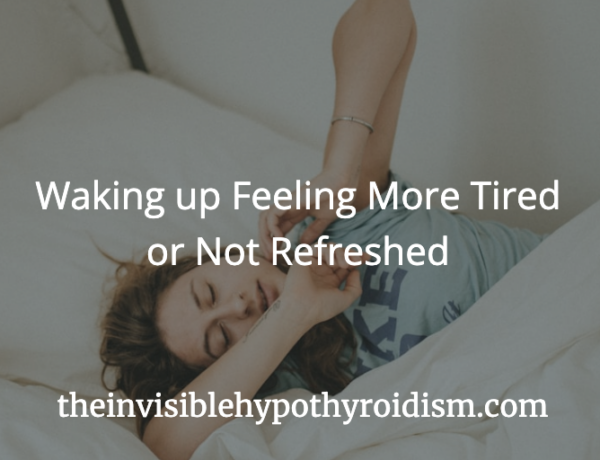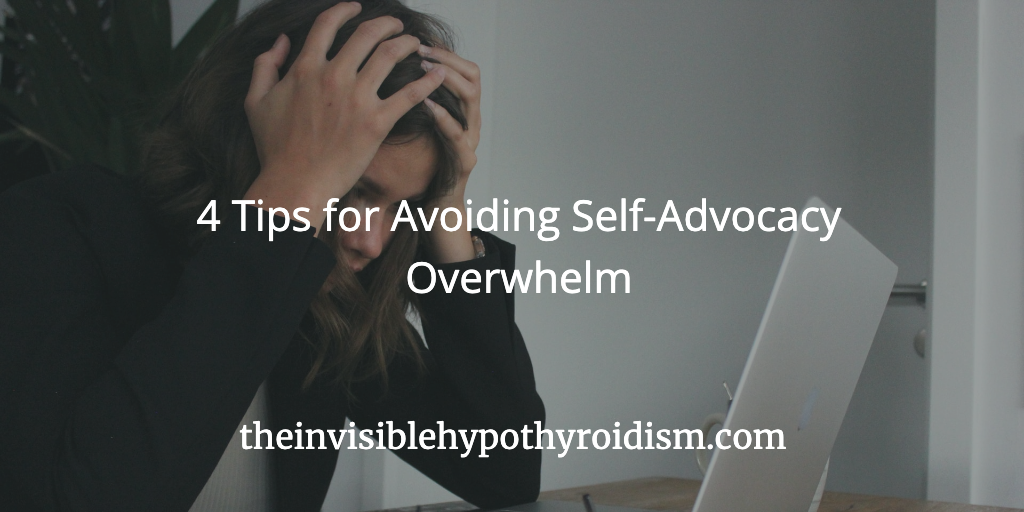If thyroid medication ‘corrects’ hypothyroidism, shouldn’t it remove all symptoms?
There is a general misconception that those with hypothyroidism take a pill everyday and then get better and feel absolutely fine, but it’s far from the truth for many of us. Not everyone feels better by taking standard thyroid medication alone.
What Does Thyroid Medication Do?
Thyroid medication aims to replace the hormones your thyroid gland is not providing (thus making you hypothyroid) but it doesn’t correct your thyroid or the way it works. It doesn’t ‘heal’ or ‘cure’ your thyroid’s dysfunction.
Once thyroid levels are optimised (and ‘optimal’ is the key word – as ‘in range’ isn’t the same as having optimal thyroid hormone levels) symptoms should generally improve or resolve, however many people still struggle day to day with symptoms.
This can be frustrating, as we’re often told that we should feel fine once we start meds.
Why is That?
There can be many reasons why we still have symptoms of thyroid disease even though we’re on thyroid hormone replacement medication.
I have said countless times that treating, managing and living well with hypothyroidism can be like piecing together a big jigsaw puzzle. Below are some of the most common jigsaw pieces that may apply to you and may be the reason why you’re still feeling unwell despite being on thyroid medication.
1. Your Thyroid Levels Aren’t Optimised
Optimal thyroid levels are discussed here.
If your TSH, Free T3, Free T4, TpoAb and TgAb are not optimal, it could well be why you still don’t feel well and have ongoing issues or symptoms, despite being on thyroid medication.
Put simply, when your doctor conducts thyroid testing and you get the results, optimal levels are the results that a lot of thyroid patients state they feel best at. This is a place within a given ‘range’. So it’s not just about falling within a wide range – it’s more narrow and specific. You can find online tests for thyroid function here and here.
2. Your Current Thyroid Meds May Not Be Cutting It
Many of us are given T4-only medication such as Synthroid or Levothyroxine, which works for a lot of people with hypothyroidism, but not everyone.
Some thyroid patients find that they require T3 medication or Natural Desiccated Thyroid meds in order to feel well. As with everything, we’re all different and our needs can differ too. There are different brands of thyroid medication as well. You could try another type or brand to see if one works better for you.
4. You Have Poor Adrenal Health
Adrenal dysfunction (note: it is more accurately referred to as hypothalamic-pituitary axis dysfunction) seems very common with hypothyroidism. If you have any symptoms of adrenal issues, such as fatigue, weight gain, sleep disruptions, craving salty and sugary foods etc. then you may benefit from completing testing to check for adrenal issues. Addressing any adrenal dysfunction helps many people to feel well again and get their thyroid meds working optimally.
If your doctor won’t check your adrenals, you can order testing yourself here and here.
5. You Have Nutrient Deficiencies or Low Levels
You may find that you have one or more low or deficient nutrient levels alongside your hypothyroidism. Many of us also have low Iron, Vitamin D, B12 and folate levels.
If you’re wondering what vitamins to consider supplementing, have a read here. However, it is advised not to supplement anything until you’ve confirmed you are low or deficient through testing.
6. Your Hashimoto’s isn’t Addressed
Have you checked if you have the autoimmune disease Hashimoto’s Thyroiditis?
Hashimoto’s causes around 90% of hypothyroidism cases, yet often goes untested and it is good to know if you have this because if you do, there are things you can do to lower the antibodies, and keeping antibodies low is important if you want to stop any further damage being done to your thyroid gland, and want to feel well.
7. You Have Food Sensitivities
Your diet can play a big part in how you feel. Many thyroid patients state they feel better when they cut out gluten. Others include alcohol, soy, grains, eggs and dairy.
Read more about diet changes and thyroid conditions here.
8. You Have Poor Gut Health
Increased Intestinal Permeability and candida (a yeast overgrowth) are reportedly very common with hypothyroidism and especially Hashimoto’s patients, since a leaky gut is often cited to needing to be in place to trigger the condition in the first place. Addressing my gut health was one of the biggest pieces of my puzzle. A UK test for Candida can be found here. and a US test here.
***
What is your experience with your thyroid medication? Feel free to share in the comments section.

See also:
The book Be Your Own Thyroid Advocate: When You’re Sick and Tired of Being Sick and Tired, which builds on this article in detail. Reclaim your thyroid healthy life and learn what else you can do to feel good with hypothyroidism.
You can click on the hyperlinks in the above post to learn more and see references to information given.







